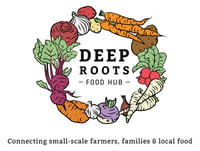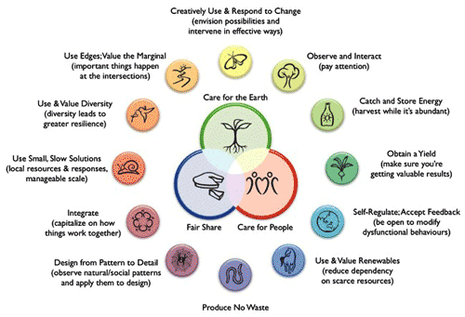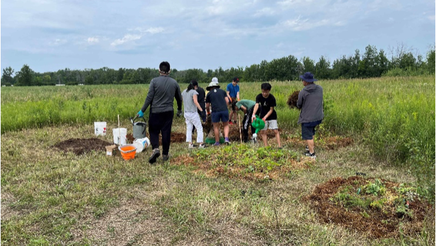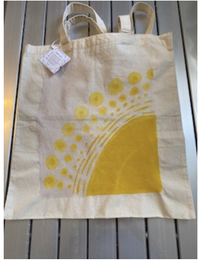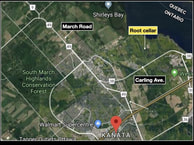230 Davidson's Side Road Permaculture Food Forest Project
Project Objective
To use the land around the Root Cellar as an educational and research space to explore practices that restore and enhance the productivity of the land. Our ultimate goal is to create a resilient, sustainable food forest that produces nutrient dense foods with minimal human intervention.
Background
Researchers now understand many of the reasons why it is essential to work with nature to produce sustainable nutritious food and why chemical approaches have damaged the soil and increased crop susceptibility to pests and diseases. It is all about the health of your soil food web and biodiversity. As growers, our role is to take care of the soil so it can take care of our plants. As individuals, we have the ability to adopt growing practices that protect and restore the soil; we need to adopt more resilient, sustainable growing practices if we want to reliably produce nutritious foods. Moreover, as our soil quality improves so will total crop yields; in many cases yield and quality of produce are enhanced when growers simply move away from monocultures towards polycultures that support biodiversity. That is where a food forest shines.
Our Approach
To engage youth volunteers in soil restoration and site development activities to provide them with a hands-on learning experience and an opportunity to gain an appreciation of the practices that impact the availability and quality of the food we eat. We are using permaculture principals to guide our journey.
YEAR 1
Summer 2023
|
“Observe and Interact” - Students, some parents and siblings, and a guidance counselor from the Earl of March High School volunteered to help kick off our education/restoration project. We observed and documented many of the plant, insect, bird, and mammal species that are present on-site in the summer. We also learned that the soil is mostly compacted heavy clay (lacking calcium and likely other minerals in the annual crop root zone), and some areas on the property are very anaerobic due to water saturation in the spring. The weeds growing on site gave us clues about the quality of the soil and what it might be missing. We also found some interesting wild plants to incorporate in our future gardens. We learned that when the soil is not too dry, there are lots earthworms present to help aerate the soil and increase fertility…some good news!
In keeping with the permaculture principles of “Use Small Slow Solutions” we created a few test lasagna bed gardens using waste cardboard, kitchen wastes and other materials found on-site. Even though we started late in the growing season, some edible produce was grown and visible improvements in soil quality were apparent by the fall. ”Obtain a Yield”. But we also learned that our soil food web needs more help to establish plant pest and disease resistance. |
Fall 2023
|
Armed with new insights, we made some modifications to our original food forest design “Creatively Use & Respond to Change”, and started building a Hugelkulture mound to separate the raw material drop-off area and the envisioned site for our Mandala gardens. The Hugelkulture mound used mainly on-site materials, e.g. dead wood and plant waste, local kitchen/garden wastes, as well as old hay/straw. Our friends at Beetbox Co-op Farm helped out with some of their greenhouse/garden wastes. “Use local resources and produce no waste.”
|
Coming in 2024...
|
Students from Woodrooffe High School have built some birdboxes to be installed in the Summer of 2024.
One of our senior student volunteers from the Earl of March is leading a research team to plan and perform experiments under the 2024 Potato Research Project. We are just starting our learning journey so stay tuned for Year 2 insights and accomplishments. |
